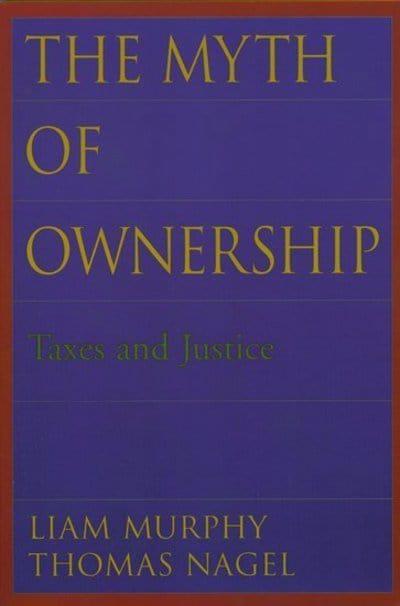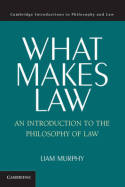The myth of ownership
taxes and justice
- ISBN: 9780195176568
- Editorial: Oxford University Press
- Fecha de la edición: 2004
- Lugar de la edición: Oxford. Reino Unido
- Encuadernación: Rústica
- Medidas: 22 cm
- Nº Pág.: 228
- Idiomas: Inglés

In a capitalist economy, taxes are the most important instrument by which the political system puts into practice a conception of economic and distributive justice. Taxes arouse strong passions, fueled not only by conflicts of economic self-interest, but by conflicting ideas of fairness. Taking as a guiding principle the conventional nature of private property, Murphy and Nagel show how taxes can only be evaluated as part of the overall system of property rights that they help to create. Justice or injustice in taxation, they argue, can only mean justice or injustice in the system of property rights and entitlements that result from a particular regime. Taking up ethical issues about individual liberty, interpersonal obligation, and both collective and personal responsibility, Murphy and Nagel force us to reconsider how our tax policy shapes our system of property rights.
Chapter 1. Introduction
Chapter 2. Traditional Criteria of Tax Equity
1:Political Morality in Tax Policy: Fairness
2:Vertical Equity: The Distribution of Tax Burdens
3:The Benefit Principle
4:Ability to Pay: Endowment
5:Ability to Pay: Equal Sacrifice
6:Ability to Pay as an Egalitarian Idea
7:The Problem of Everday Libertarianism
8:Horizontal Equity
Chapter 3. Economic Justice ni Political Theory
1:Political Legitimacy
2:Consequentialism and Deontology
3:Public Goods
4:Benefits for Individuals
5:Efficiency and Utilitarianism
6:Distributive Justice, Fairness, and Priority to the Worst Off
7:Equality of Oppotunity
8:Legitamite Means and Individual Responsibility
9:Rewards and Punishments
10:Liberty and Libertarianism
11:The Moral Significance of the Market
12:Personal Motives and Political Values: The Moral Division of Labor
13:Conclusion
Chapter 4. Redistribution and Public Provision
1:Efficiency and Judgement
2:Paying for Public Goods
3:Which Goods are Public?
4:Redistribution
5:Transfer or Provision?
6:Public Duties
7:Conclusion
Chapter 5. The Tax Base
1:Efficiency and Justice
2:Outcomes, not Burdens
3:The Consumption Base and Fairness to Savers
4:Fairness as Equal Liberty
5:Desert and the Accumulation of Capital: The "Common Pool"
6:Wealth and Welfare
7:Wealth and Opportunity
8:Endowment and the Value of Autonomy
9:Exclusions and Credits
10:Transitions
Chapter 6. Progressivity
1:Graduation, Progression, Incidence, and Outcomes
2:Assessment of Outcomes
3:Optimal Taxation
4:Tax Reform
Chapter 7. Inheritance
1:The "Death Tax"
2:The Tax Base of the Donee
3:No Deduction for Donors
4:Details and Objections
5:Equal Opportunity and Transfer Taxation
6:Conclusion
Chapter 8. Tax Discrimination
1:Justifying Differential Treatment
2:An Example: The Marriage Penalty
3:Incentive Effects and Arbitrariness
Chapter 9. Conclusion: Politics
1:Theory and Practice
2:Justice and Self-Interest
3:Plausible Policies
4:Effective Moral Ideas
Notes
References










